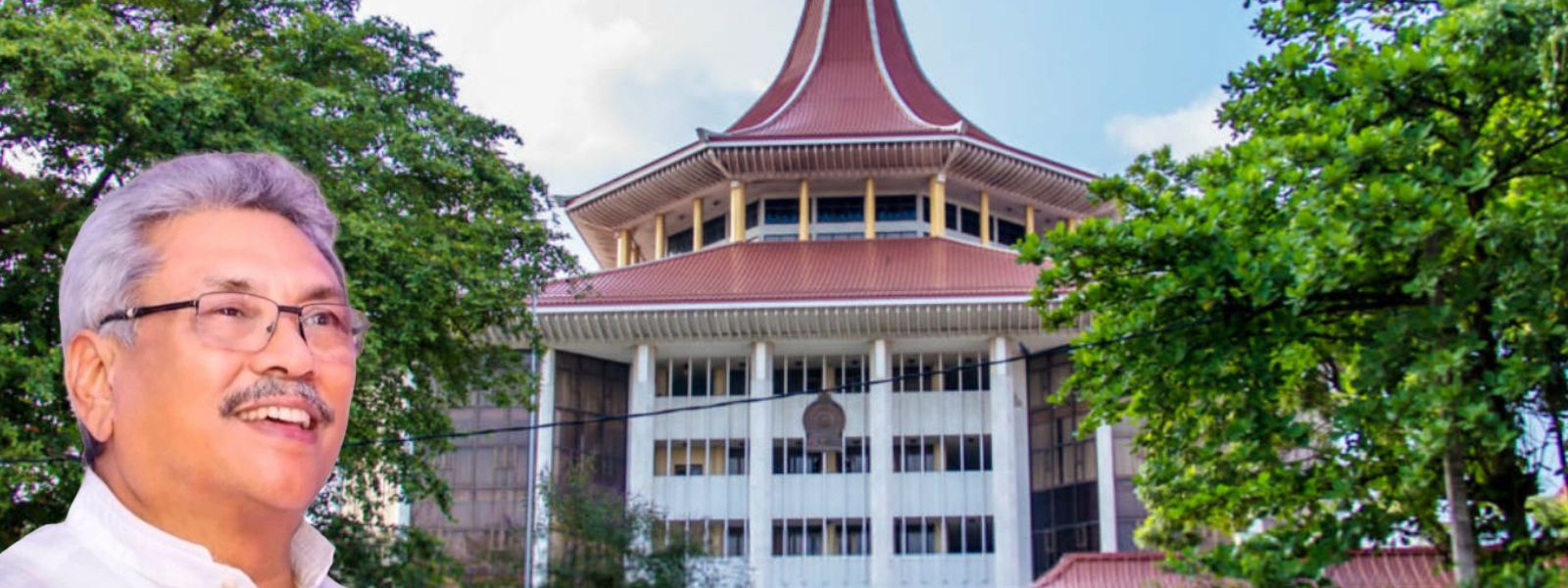.webp)

Gotabaya Willing to Testify — But Not in Jaffna
COLOMBO (News 1st); Former President Gotabaya Rajapaksa has informed the Supreme Court of his willingness to provide testimony in the habeas corpus case filed by the families of Lalith Weeraraj and Kugan Muruganandan, two human rights activists who disappeared in 2011.
This announcement was made during a hearing on an appeal petition related to the case.
President’s Counsel Romesh de Silva, appearing on behalf of Gotabaya Rajapaksa, conveyed the former President’s readiness to testify.
The original habeas corpus petition was filed before the Jaffna Magistrate’s Court.
However, citing security concerns, President's Counsel de Silva informed the court that his client is unable to travel to Jaffna but is prepared to testify before a Colombo court.
The three-judge bench of the Supreme Court, comprising Justices Yasanta Kodagoda, Kumuduni Wickramasinghe, and Shiran Gunaratne, instructed President's Counsel de Silva to submit a formal request to the Jaffna Magistrate’s Court within four weeks to obtain appropriate orders.
The President's Counsel also requested that the case be concluded, given his client’s willingness to testify.
Attorney-at-Law Nuwan Bopage, representing the petitioners, agreed with the request.
Accordingly, the Supreme Court ruled to conclude the appeal proceedings.
In 2019, a summons was issued to Gotabaya Rajapaksa to appear before the Jaffna Magistrate’s Court and provide testimony in the habeas corpus case filed by the families of Lalith Weeraraj and Kugan Muruganandan, two human rights activists who disappeared in 2011.
Gotabaya Rajapaksa was serving as the Secretary of Defence at the time of the incident.
Citing security concerns, Rajapaksa filed a petition before the Court of Appeal, challenging the summons.
The Court of Appeal subsequently issued a writ order, nullifying the summons and stating that Rajapaksa was not required to appear in Jaffna.
Seeking to overturn that decision, the families of the disappeared activists filed an appeal petition before the Supreme Court.
Other Articles
Featured News





.png )
-819392_550x300.jpg)
-819386_550x300.jpg)
-819380_550x300.jpg)

-819368_550x300.jpg)







-812087_550x300.jpg)
-810262_550x300.jpg)
















.gif)